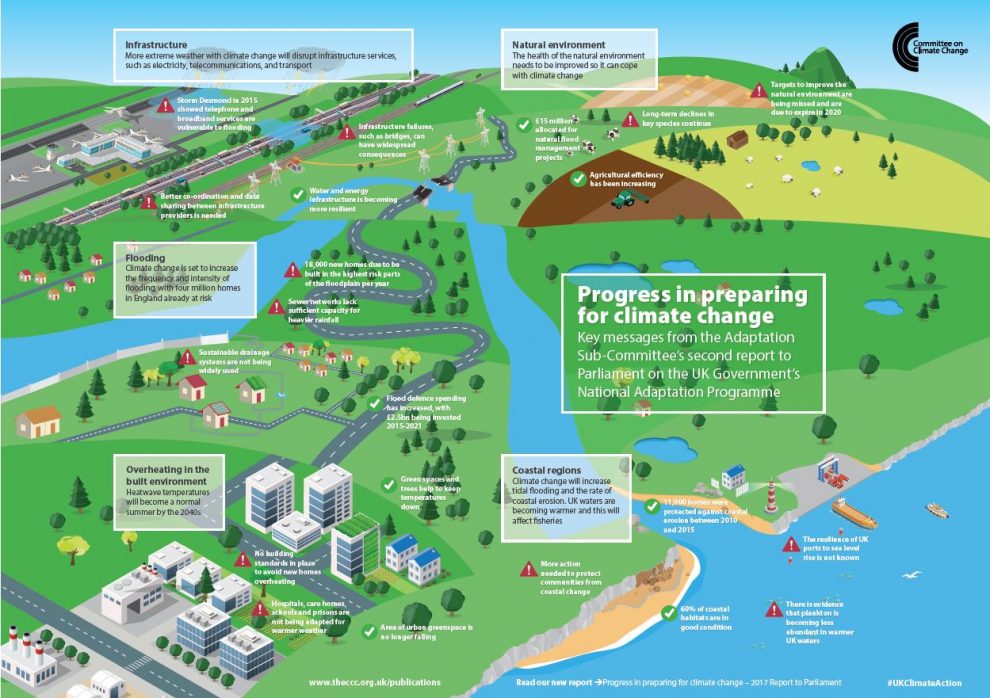A new study finds climate change skeptics are more likely to behave in eco-friendly ways than those who are highly concerned about the issue.
Do our behaviors really reflect our beliefs? New research suggests that, when it comes to climate change, the answer is no. And that goes for both skeptics and believers.
Participants in a year-long study who doubted the scientific consensus on the issue “opposed policy solutions,” but at the same time, they “were most likely to report engaging in individual-level, pro-environmental behaviors,” writes a research team led by University of Michigan psychologist Michael Hall.
Conversely, those who expressed the greatest belief in, and concern about, the warming environment “were most supportive of government climate policies, but least likely to report individual-level actions.”
Sorry, I didn’t have time to recycle—I was busy watching a documentary about the crumbling Antarctic ice shelf.
GOP Rep Nancy Mace introduces ‘Death Penalty for Child Rapists Act’
Nancy Mace says ‘unhinged’ Hillary Clinton erupted during closed-door Epstein deposition
Starmer blasts ‘extreme’ and ‘sectarian’ Green Party after brutal election defeat
BREAKING: Hillary Clinton Reportedly Started ‘Screaming’ and Became ‘Unhinged’ During Epstein Deposition, Which Is Set to Air on C-SPAN
Nancy Pelosi Makes Absurd Claim That Trump Hates America: Presidents Have ‘All Been Patriots Until Now’
Susie Wiles’ lawyer denies approving FBI recording, says he’d lose license over ‘stunt’
Watch: Doorbell Camera Catches Toddler Barely Escaping Aggressive Coyote in the Middle of Los Angeles County
Agency that nabbed ‘El Chapo,’ ‘Diddy’ threatened as Democrats’ DHS shutdown drags on
Watch: Black Panelist Mops Floor with White Lib Who Seems to Think Black Americans Don’t Know How to Get ID
Registered sex offender’s city council bid sparks fury as officials explore blocking his path
Where Iran’s ballistic missiles can reach — and how close they are to the US
Swalwell campaign sets off alarm bells after accepting $25K donation from CCP-tied lawyer: ‘Outrageous’
California’s vulnerable House Republicans swap districts and strategize ahead of primary
Bill Clinton faces high-stakes House grilling in Epstein probe and more top headlines
Senate GOP sends warning to House SAVE Act agitators: Don’t tell us what to do
The study, published in the Journal of Environmental Psychology, followed more than 400 Americans for a full year. On seven occasions—roughly once every eight weeks—participants revealed their climate change beliefs, and their level of support for policies such as gasoline taxes and fuel economy standards.
They also noted how frequently they engaged in four environmentally friendly behaviors: recycling, using public transportation, buying “green” products, and using reusable shopping bags.
The researchers found participants broke down into three groups, which they labeled “skeptical,” “cautiously worried,” and “highly concerned.” While policy preferences of group members tracked with their beliefs, their behaviors largely did not: Skeptics reported using public transportation, buying eco-friendly products, and using reusable bags more often than those in the other two categories.
This pattern was found consistently through the year, leading the researchers to conclude that “belief in climate change does not appear to be a necessary or sufficient condition for pro-environmental behavior.”
GOP Rep Nancy Mace introduces ‘Death Penalty for Child Rapists Act’
Nancy Mace says ‘unhinged’ Hillary Clinton erupted during closed-door Epstein deposition
Starmer blasts ‘extreme’ and ‘sectarian’ Green Party after brutal election defeat
BREAKING: Hillary Clinton Reportedly Started ‘Screaming’ and Became ‘Unhinged’ During Epstein Deposition, Which Is Set to Air on C-SPAN
Nancy Pelosi Makes Absurd Claim That Trump Hates America: Presidents Have ‘All Been Patriots Until Now’
Susie Wiles’ lawyer denies approving FBI recording, says he’d lose license over ‘stunt’
Watch: Doorbell Camera Catches Toddler Barely Escaping Aggressive Coyote in the Middle of Los Angeles County
Agency that nabbed ‘El Chapo,’ ‘Diddy’ threatened as Democrats’ DHS shutdown drags on
Watch: Black Panelist Mops Floor with White Lib Who Seems to Think Black Americans Don’t Know How to Get ID
Registered sex offender’s city council bid sparks fury as officials explore blocking his path
Where Iran’s ballistic missiles can reach — and how close they are to the US
Swalwell campaign sets off alarm bells after accepting $25K donation from CCP-tied lawyer: ‘Outrageous’
California’s vulnerable House Republicans swap districts and strategize ahead of primary
Bill Clinton faces high-stakes House grilling in Epstein probe and more top headlines
Senate GOP sends warning to House SAVE Act agitators: Don’t tell us what to do
Hall and his colleagues can only speculate about the reasons for their results. But regarding the concerned but inactive, the psychological phenomenon known as moral licensing is a likely culprit.
Previous research has found doing something altruistic—even buying organic foods—gives us license to engage in selfish activity. We’ve “earned” points in our own mind. So if you’ve pledged some money to Greenpeace, you feel entitled to enjoying the convenience of a plastic bag.
Regarding climate change skeptics, remember that conservatism prizes individual action over collective efforts. So while they may assert disbelief in order to stave off coercive (in their view) actions by the government, many could take pride in doing what they can do on a personal basis.
The results suggest that “changing skeptical Americans’ minds need not be a top priority for climate policymakers,” at least if their goal is inspiring individual action. Perhaps the more urgent task is to focus on people who already grasp the problem, and get them to align their actions with their concern.
Story cited here.
























